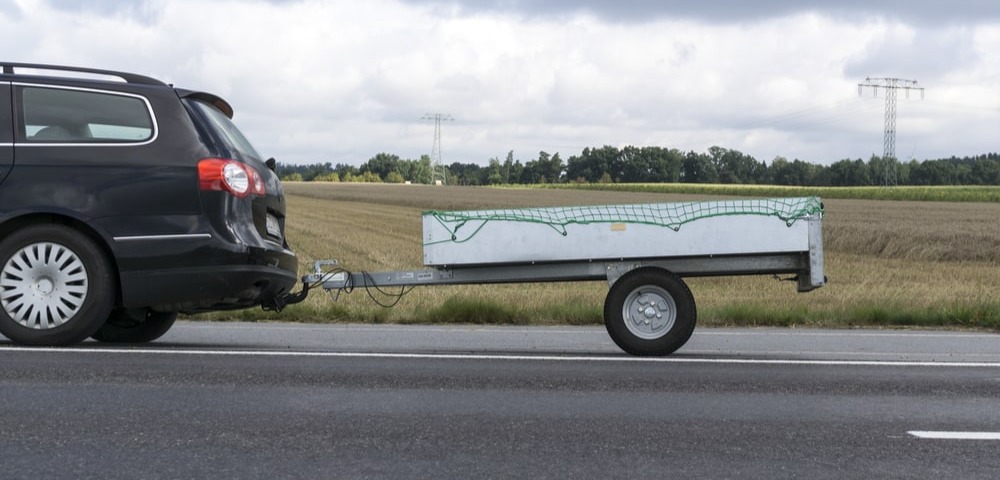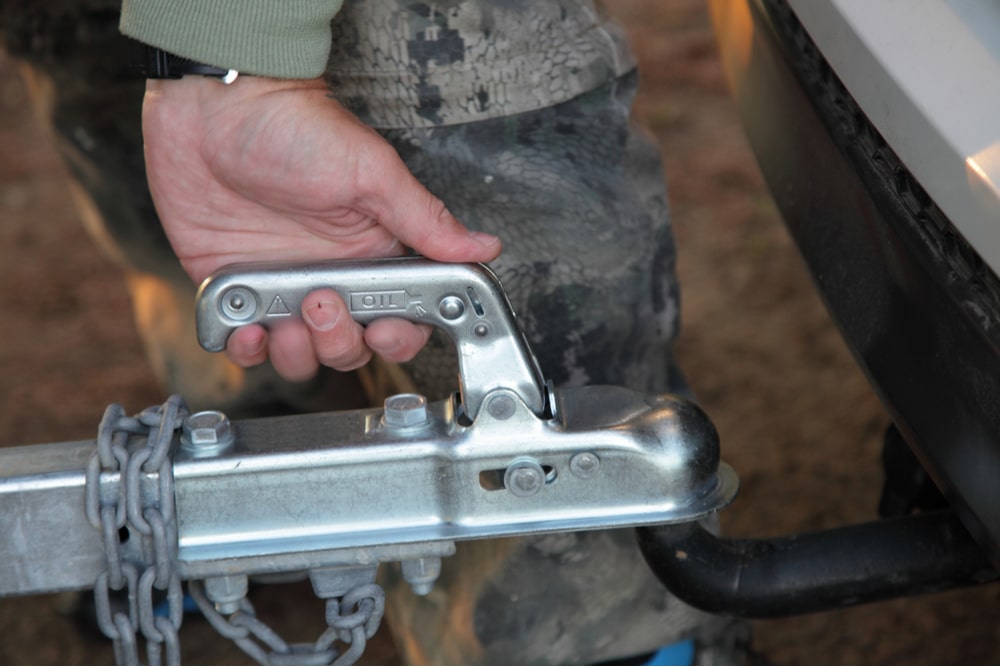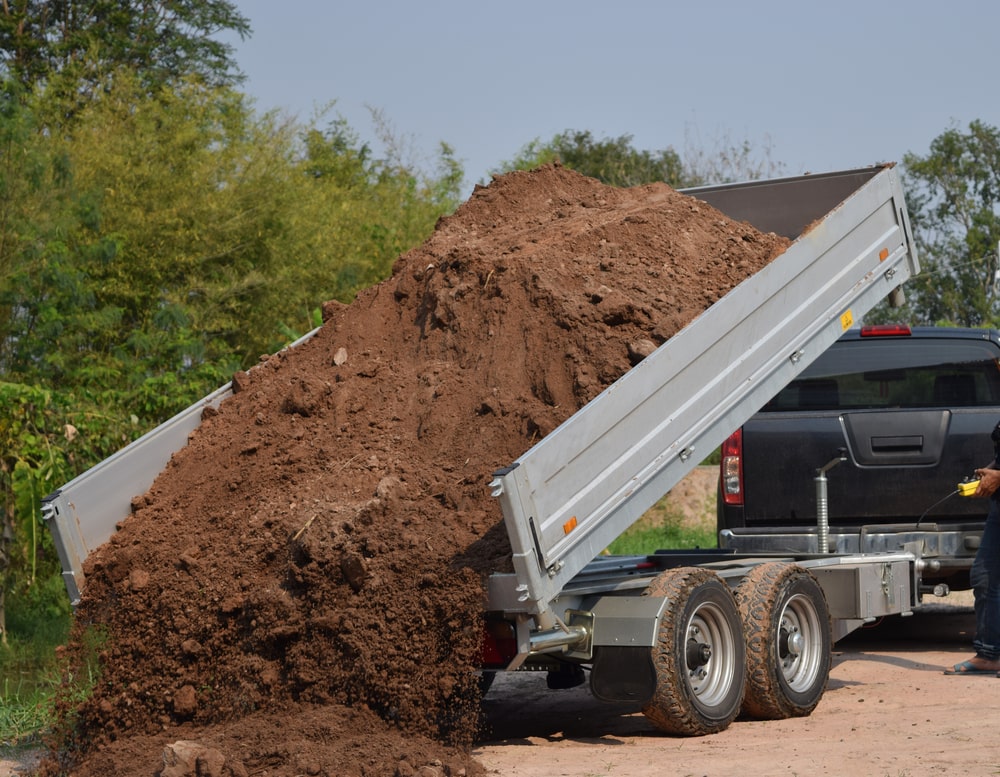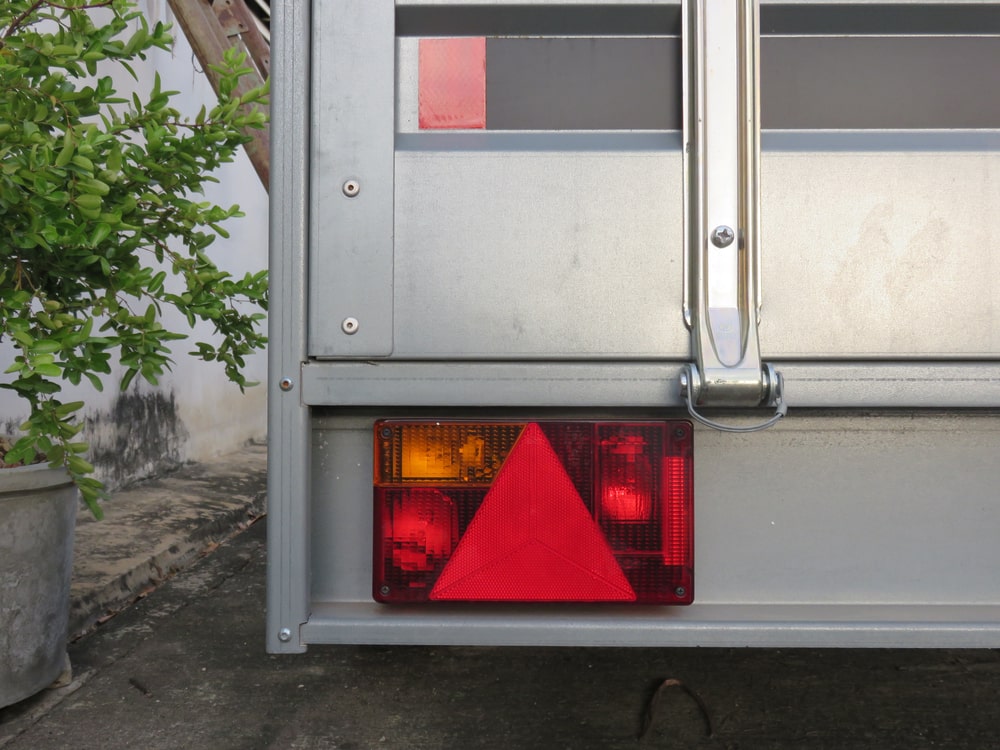You may check out all the available products and buy some in the shop.

When we are towing something, the number one priority should always be the safety aspects involved. Keeping you, your passengers, your vehicle and trailer, and other road users safe is a ‘must’ every time you go on the road while towing a trailer.
Today we bring you 10 of our top tips to keep you safe while you are towing. So, without further ado let's get to TrailerTek’s 10 top tips for safe trailer towing.
1. Know Your Limits
Knowing the limits of your trailer and your towing vehicle are imperative to the safety of your towing experience. You can find the limits of your towing vehicle in the vehicle documentation. You should never exceed the maximum towing capacity of your weakest component. That is to say, if your vehicle had a maximum towing capacity of 3500kg, and your towbar had a maximum towing capacity of only 2000kg, you should never exceed a towing weight of 2000kg.
Trailers come with their own maximum towing limits, these should never be exceeded. You should match your trailer to your towing vehicle as closely as possible. Larger trailers will generally have a greater impact on the handling of the vehicle, so will therefore require a larger vehicle to tow them.

2. Weight Distribution
Distributing weight appropriately on your trailer makes a massive difference when it is in tow. You should aim to have roughly 60% of the weight at the nose of your trailer and 40% at the rear. This ensures there is not too much weight on the towing equipment, while also stopping the trailer from pulling upwards on the rear of your towing vehicle.
Incorrect weight distribution can lead to your trailer beginning to sway while in tow, this is most likely to happen at higher speeds and is one of the leading causes of accidents involving trailers. Learn how to deal with trailer sway by reading our trailer sway article.
Weight should be distributed evenly forward and backwards, left and right, and also vertically. When it comes to vertical weight distribution there is one simple rule - keep the weight as low as possible. Keeping weight low helps to lower the centre of gravity of your trailer, which helps reduce the chance of it tipping during a turn.
All items in your trailer should be secured to stop them from moving around during transport. If items begin to move they can impact the weight distribution of your trailer and lead to an accident.
3. Understand Handling Differences
When you hitch a trailer to a vehicle you will instantly change the handling characteristics of that vehicle. As more weight is added to the trailer the effects of this will be exaggerated. This means you will have to change how you drive to account for these handling differences.
You will find reversing with a trailer is different to reversing just a vehicle. It is always handy to have someone outside of the vehicle to direct you to ensure you are manoeuvring safely.
When driving you should avoid sudden turns, and take caution when completing any manoeuvres. Due to the increased centre of gravity, taking corners at speed can cause your trailer to tip which may result in an accident.
Be aware that the increased weight of the combined vehicle and trailer will increase the momentum your vehicle has. This means it will be harder to stop, so exercising caution and braking well in advance is a ‘must’ when you have a trailer in tow.
Generally, the larger and the heavier your trailer, the greater impact it will have on all of the above.

4. Keep an Eye on Your Trailer
Just Because your trailer looked okay before you left doesn't mean it will stay that way throughout the whole journey. Bumps and vibration during towing can lead to straps becoming loose or items moving around during transport. Taking a look behind you every once in a while during the tow will help you spot any problems before they have time to develop into something serious.
Just a glance in the mirrors is usually enough to spot any problems. If you do notice anything, even if it is small, you should always take the time to pull over and inspect the trailer - these few minutes can save a lot of time and effort compared to if the problem was to develop into something serious - it could even save a life.
5. Plan Your Journey
Manoeuvring a trailer can be very difficult, so why not make your journey as easy as possible! Try to plan your route and avoid narrow roads or any other tricky routes which could make your tow more difficult. Route planning is a great idea because it can help you avoid road closures, while also giving you an idea of what to expect during your trip. If you are going on a long journey be sure to add a few rest stops so you can recharge your batteries before carrying on.
6. Use an Appropriate Driving Style
The general rule when it comes to towing a trailer is that everything is going to be slower and require a more planned approach. This goes for everything from changing lanes to accelerating. The additional length and weight the trailer adds to your vehicle means this should be accounted for during every manoeuvre.
When you change lanes on a motorway give yourself more time and make sure there is enough space to make this manoeuvre safely. The same goes for emerging out of a junction, this is where the extra length and weight of your vehicle will be at its most obvious. Never pull out Into the road when you believe the gap is only just big enough, allow yourself as much space as possible for both turning and accelerating. Be aware you will need a larger turning space, which may mean you will have to cross the centre line of the road during the turn - in this situation be patient and wait for a gap in both lanes of traffic, never emerge and expect people to stop as this puts both you and them at risk.
If you find yourself travelling on a road you feel could be a danger to you or others, keep your speed as low as possible, and pull over if you feel this is necessary or to allow vehicles behind you to pass if a queue is forming.
7. Use Your Transmission to Your Advantage
Using your transmission is a great way to improve your vehicle's performance in both acceleration and braking scenarios. Use a lower gear when you are travelling up hills to help reduce the stress on your vehicle's transmission and give it the best pulling potential.
Similarly, use a lower gear when going downhill as this will allow you to take full advantage of engine braking and help take the strain off of the vehicle’s or trailer’s brakes - you may find under heavy braking or after prolonged brake use (going downhill for a long time) your vehicle’s brakes may overheat, so engine braking can help avoid this.
8. Complete a Walk-Around Safety Check
Taking a look around your vehicle before you leave or during the journey is a good way of ensuring your vehicle and trailer are fit for the road. Look for worn tyres, check for punctures, make sure any loads are tied down correctly and test your lights before taking your vehicle and trailer on the road.
This will not only improve the safety of your vehicle but could also help avoid getting a ticket from the police for driving a vehicle that is unfit for the road.

9. Understand What to do in an Emergency
You may find during towing you encounter a problem, this could be anything from a flat tyre to a fully developed trailer sway. Dealing with each scenario effectively and calmly is vital to keeping your vehicle and trailer safe on the road.
Carrying equipment such as a spare wheel and the tools required to change a wheel is always advised when going on a long trip. Roadside repairs should be done safely, as far away from flowing traffic as possible and you should always try to wear high visibility clothing while completing the repair.
You should be aware that strong winds can sometimes affect a trailer while it is in tow and could cause the trailer to sway or snake behind your vehicle. If this does occur, gently ease off the accelerator, do not apply the brake, and allow both vehicle and trailer to slow down naturally. As the speed reduces you should regain full control over the vehicle and the swaying should subside. If you experience your trailer swaying more than once you should pull over to the side of the road and consider redistributing the weight loaded on your trailer more appropriately.
10. Take Your Time
As we have mentioned multiple times, the key to safe towing always comes back to taking a and slow approach. Taking time to tow safely can quite literally be a lifesaver. If you avoid rushing it will not only help you spot any mistakes or problems with your trailer or vehicle, but it will also help avoid any issues developing due to the way you are driving.
For more information on any of our trailer safety tips, or for general help with all things trailers get in touch with TrailerTek and one of our experienced team members would be happy to help.











